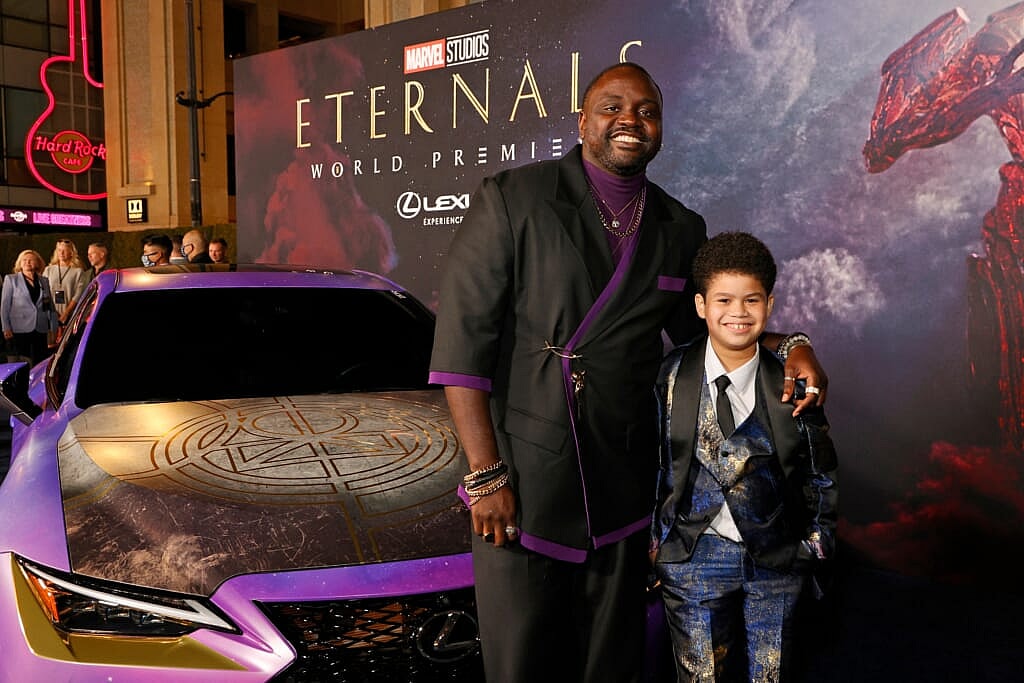For over a decade, the Marvel Cinematic Universe has entertained viewers all over the world with big-budget film adaptations of beloved comic book superheroes. Films like Black Panther, Captain Marvel, and Shang-Chi have pushed the boundaries when it comes to showcasing underrepresented groups in the genre. With its latest movie, Marvel proves it’s just getting started.
Eternals is the MCU’s 26th entry and arguably its most ambitious to date, spanning over 7,000 years and featuring about 10 leading characters. The film adapts one of Marvel’s most unique titles in their massive catalogue, Jack Kirby’s 19-issue series, The Eternals.
The series, and the film, zooms out of the Marvel universe by focusing on a group of immortal beings who were sent to earth to protect humans. Living on the planet for thousands of years, these beings eventually develop love for the planet and the people who inhabit it, with many of them going on to lead full lives in secret: falling in love, building careers, and even establishing new families of their own.

Brian Tyree Henry‘s character, Phastos, is charged with advancing the human race by helping them develop technologies. After disillusionment with how humans used this technology for war, his character chooses to take a step back and finds love in the process. Breaking the mold for Marvel movies and truly taking a major step in the right direction for representation, the second half of the film reintroduces Phastos in the present day with his same-sex partner, Ben (Haaz Sleiman).
Arguably the most powerful aspect to this, however, is the unremarkable way it is all presented. Phastos simply has a family of his own now (sharing a baby boy with Ben), with the nature of his same-sex relationship never once questioned or even singled out. The two also share the first same-sex kiss in a Marvel film.
Representation on screen can often feel, for the underrepresented, as an after-thought, as many felt with the blink-if-you-miss-it same-sex kiss at the end of Star Wars: The Rise of Skywalker, or the similarly short moment with LeFou and Gaston at the end of Disney’s 2017 Beauty and the Beast. Instead of repeating this trend in the MCU, director Chloé Zhao and writers Ryan and Kaz Firpo allow viewers to simply witness Phastos’ lived experience, raising the stakes for the entire movie when he makes the decision to risk his own life for his family.
Perhaps Firpo’s own lived experience helped when writing the film as Firpo acknowledged being raised by two women in a recent interview with The Hollywood Reporter.
“It was very normal for me. That normalcy, that completely unremarkable nuance of everyday life was something I wanted to really reflect from the beginning,” Firpo said.

Sleiman, who plays Ben, has publicly acknowledged the gravity of his role as well as Henry’s, referring to Phastos as a “life-saving” portrayal. When speaking with Variety, he shared it was, “beyond a dream come true, it’s life-saving. I wish I had that when I was a kid to see this. My god. I wish! Can you imagine how many lives this is going to be saving — kids, young queer folk, who are being bullied, committing suicide, and not seeing themselves being represented? And now they get to see this — it’s above and beyond.”
The film has still divided critics and audiences alike, with many complaining about runtime, plot and more. But its legacy of having one of Marvel’s most diverse casts seems to be leaving the biggest impact — so much so that Disney is standing firm and opting not to make edits for various anti-LGBTQ+ countries demanding so.
Let’s hope the future of Eternals, and the rest of the MCU at large, continues to forge a path and cinematic landscape where people all over the world can see themselves.
Have you subscribed to theGrio’s podcast “Acting Up”? Download our newest episodes now!
TheGrio is now on Apple TV, Amazon Fire, and Roku. Download theGrio today!

